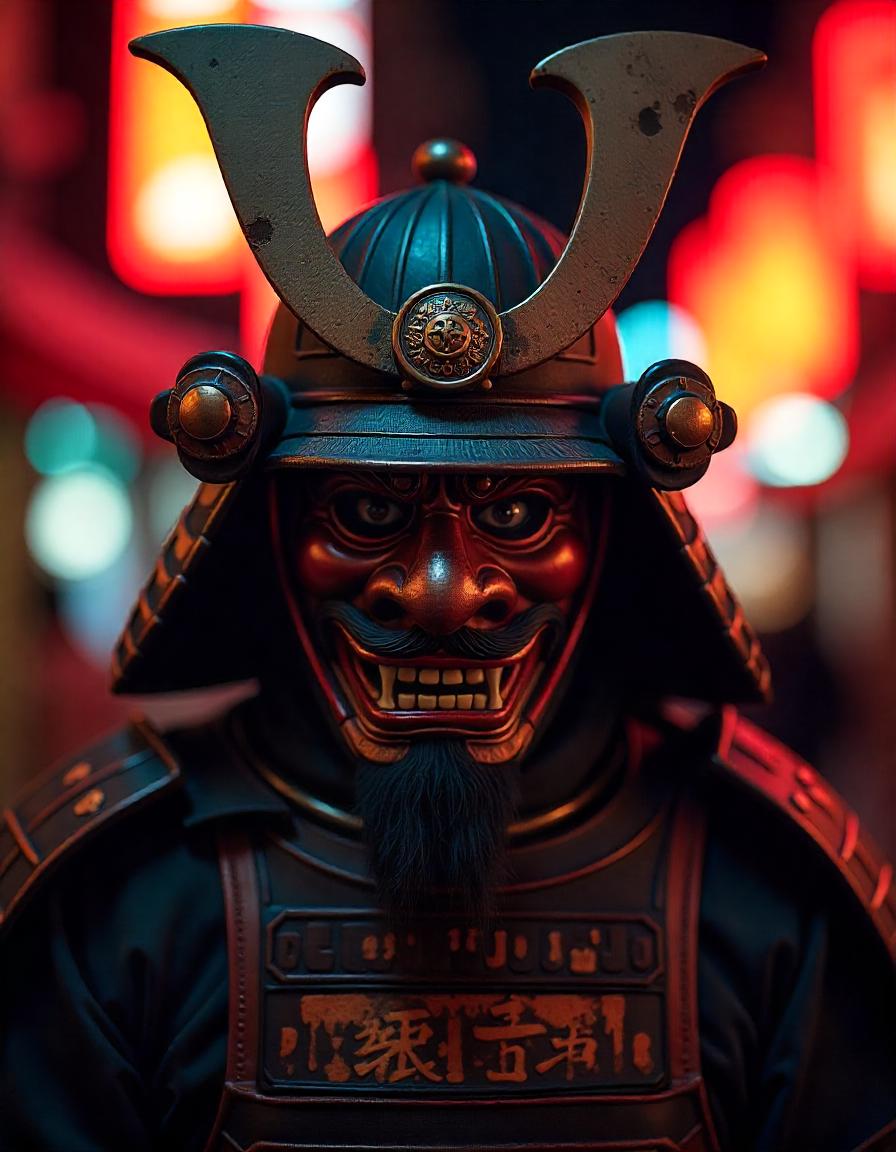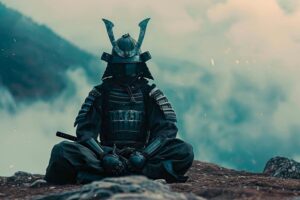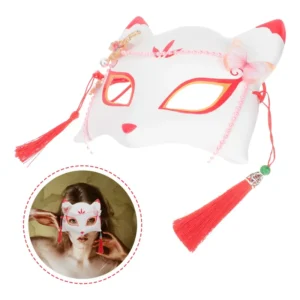Samurai, Japan’s iconic warriors, were renowned as protectors of feudal lords (daimyos) and formidable leaders in Japanese history. Active from the late 12th to the 19th centuries, they played a pivotal role in shaping Japan’s culture and traditions. Among the many questions surrounding their legacy is: Did Samurai wear Oni masks?
In this article, we’ll uncover the fascinating connection between Samurai and the legendary Japanese Oni masks, exploring their purposes and cultural significance.
Did Samurai Wear Oni Masks?
Yes, Samurai wore Oni masks, deeply tied to Japanese mythology and symbolism. These masks served various purposes, from practical to ceremonial:
- Psychological Warfare:
Oni masks, with their fearsome and grotesque designs, were crafted to intimidate opponents in battle. Their striking appearance boosted Samurai confidence and demoralized enemies on the battlefield. - Symbolism:
Oni masks symbolized strength, bravery, and power. By wearing these masks, Samurai embodied the legendary traits of the Oni (mythological demons), projecting an aura of invincibility. - Celebrations and Rituals:
During festivals or ceremonies, Samurai wore Oni masks to add grandeur and mystique to their rituals. These masks enhanced the cultural significance of events, creating a dramatic and captivating atmosphere. - Protection:
Practicality was key in battle. Samurai wore a specific type of armor mask called mempo, designed to protect the face and neck from minor attacks, dust, and other battlefield hazards. While mempo masks were distinct, some resembled Oni masks, blending practicality with symbolic aesthetics.
Did Samurai Wear Oni Masks in Every Battle?
No, Samurai did not wear Oni masks in every fight. Oni masks, often made from wood or other soft materials, were not ideal for rigorous combat. Instead, Samurai relied on the sturdier mempo masks, forged from iron or steel, for protection.
Mempo masks featured a practical full-face or partial design, shielding vital areas from dust, glancing sword blows, and minor impacts. While not impenetrable against heavy strikes, they offered substantial defense in battle.
Did Oni Masks Possess Evil Powers?
Contrary to common misconceptions, Oni masks do not inherently harbor evil powers. In Japanese mythology, Oni are fearsome demons, often symbolic of chaos or protection. As such, Oni masks represent these traits rather than actual supernatural abilities.
Some myths suggest that these masks could channel mystical energy, gifted by gods to chosen individuals for the protection of their followers. However, their use in Samurai culture was rooted more in symbolism than supernatural beliefs.
Modern Significance of Oni Masks
Oni masks remain a cherished part of Japanese culture, prominently featured in festivals, theatrical performances, and art. Their striking designs continue to captivate audiences, symbolizing Japan’s rich history and mythology.
Today, they draw tourists and enthusiasts eager to explore Japan’s vibrant traditions, connecting the past to the present through cultural celebrations.
Conclusion
Japanese Oni masks hold a unique place in history and culture, blending mythological symbolism with practical uses. For Samurai, these masks were more than just decorations—they were tools for intimidation, protection, and celebration.
While not worn in every battle, Oni-inspired mempo masks provided essential defense and embodied the strength and courage of Japan’s legendary warriors. Beyond the battlefield, these masks enriched Japanese rituals and continue to inspire fascination worldwide.
FAQs
Did Samurai wear Oni masks?
Yes, Samurai wore Oni masks for symbolic purposes, psychological warfare, and rituals. On the battlefield, they often used mempo masks for protection.
Were Oni masks used in every battle?
No, Oni masks were not ideal for combat. Samurai relied on mempo masks, crafted from iron or steel, for battlefield protection.
Did Oni masks have supernatural powers?
No, Oni masks do not inherently possess supernatural powers. However, they symbolized fearsome traits and mystical energy in Japanese mythology.
Were Oni masks unique to Samurai?
No, Oni masks were part of broader Japanese culture. Samurai adopted their designs for practical and symbolic purposes.




